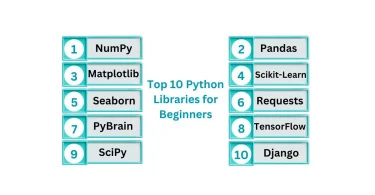In recent times, there has been a lot of progress in the field of quantum computing, which combines different areas of study. It has gained a lot of attention from both the academic and business communities because it has the potential to process information in entirely new ways, leading to significantly improved computational abilities. However, despite its potential, we have not fully explored how quantum computing can impact healthcare.
Quantum Computing Potential in Healthcare:
Over the past few years, notable advancements have been achieved in computer technology, facilitating the processing of large volumes of data. Quantum computing, specifically, displays immense potential in swiftly addressing intricate tasks compared to traditional computers.
The healthcare sector stands to reap substantial advantages from the progress in quantum computing, particularly considering the exponential growth of health data both in terms of quantity and diversity. A prime example is the challenges faced by healthcare professionals during the COVID-19 pandemic when novel variants of the virus emerged. These challenges were intensified due to their reliance on conventional computing systems for genome sequencing.
This highlights the urgent necessity of exploring innovative approaches to expedite healthcare analysis and monitoring endeavors, thereby ensuring effective management of future pandemic scenarios. Quantum computing represents a groundbreaking opportunity for significantly advancing healthcare technologies.
The objective of this article is to provide a comprehensive analysis of quantum computing within the healthcare domain.
Understanding the Fundamentals of Quantum Computing:
Quantum computing is based on the principles of quantum mechanics, which involve concepts like superposition, interference, and entanglement. In the realm of quantum physics, a single unit of information can exist in multiple states simultaneously, representing both 1 and 0 concurrently.
This unique characteristic, known as superposition, is harnessed in quantum computing through the use of qubits, or quantum bits. These qubits form the foundation of quantum computing and have the potential to revolutionize computing systems in the future. By leveraging the principles of quantum physics, quantum computing enables the real-time processing of enormous amounts of data, offering tremendous computational power.
Researchers have shown a growing interest in quantum computing as they seek to push the boundaries of computing power beyond the limits imposed by Moore’s Law.
Quantum Computing: Revolutionizing Healthcare through High-Performance Applications.
Quantum computing is especially suitable for various computationally intensive applications in healthcare. This is especially relevant in today’s highly interconnected digital system of healthcare paradigm, which involves interconnected medical devices (like sensors) that are connected to the internet or the cloud.
The significant increase in computational capacity offered by quantum computers is not only beneficial for healthcare IoT (Internet of Things) but also has the potential to bring about fundamental breakthroughs in this field.
Moving from traditional bits to quantum qubits can enhance healthcare pharmaceutical research. For example, it can help analyze protein folding, understand molecular structures (such as drugs and enzymes) and their interactions, and accelerate the process of clinical trials.
Quantum computing has the potential to profoundly impact various aspects of healthcare. One significant area is its ability to accelerate DNA sequencing, opening up possibilities for personalized medicine. Through the utilization of quantum computing, intricate modeling can be conducted to support the advancement of innovative therapies and medications.
Furthermore, quantum computers offer promising prospects for the development of advanced imaging systems that provide healthcare professionals with real-time, enhanced clarity. This advancement has the potential to significantly improve diagnostic accuracy and support informed decision-making in treatment approaches.
In addition, it can contribute to addressing complex optimization challenges involved in designing precise radiation plans for cancer treatment. By minimizing harm to healthy tissues, these advanced computational capabilities can enhance the effectiveness and safety of radiation therapy.
Moreover, quantum computing has the potential to revolutionize various aspects of the healthcare system. It enables on-demand computing, ensuring efficient and rapid processing of healthcare data.
Quantum computing also strengthens data security measures, addressing concerns related to safeguarding sensitive medical information.
Additionally, it has the capability to predict chronic diseases by analyzing extensive patient data and can facilitate more precise drug discoveries through advanced computational simulations.
Overall, the integration of quantum computing in healthcare holds significant potential for transforming the field and improving patient outcomes.
Summary
In conclusion, quantum computing has the potential to greatly change healthcare. It can process information in new ways, which helps with the growing amount of health data. By using the principles of quantum mechanics, quantum computing can make healthcare analysis, modeling and optimization faster and more accurate. It can benefit personalized medicine, like quickly sequencing DNA and improve imaging and radiation planning for treating diseases like cancer. As scientists and healthcare professionals keep exploring computing power, quantum computing becomes a valuable tool to advance healthcare and help patients.




Leave a Comment